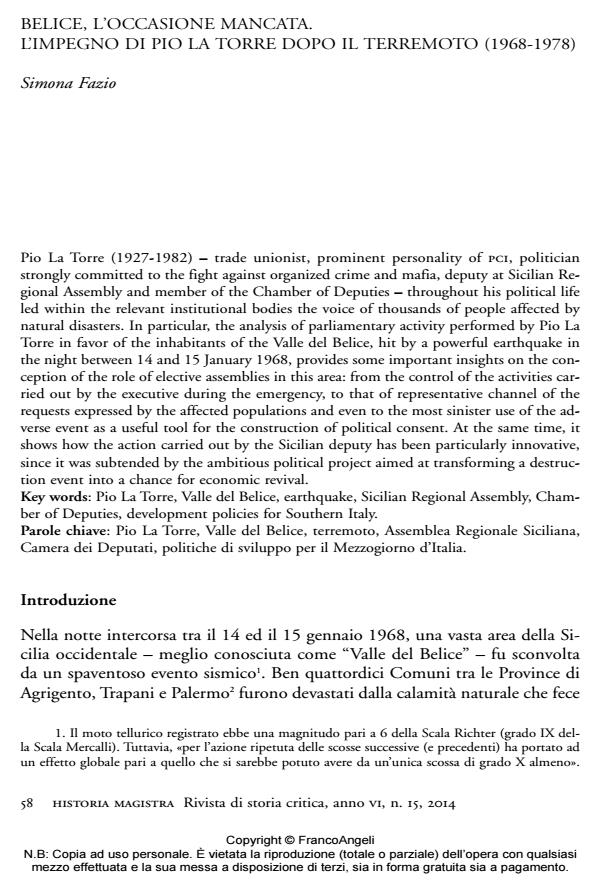Belice, l’occasione mancata. L’impegno di Pio La Torre dopo il terremoto (1968-1978)
Journal title HISTORIA MAGISTRA
Author/s Simona Fazio
Publishing Year 2015 Issue 2014/15
Language Italian Pages 15 P. 58-72 File size 113 KB
DOI 10.3280/HM2014-015006
DOI is like a bar code for intellectual property: to have more infomation
click here
Below, you can see the article first page
If you want to buy this article in PDF format, you can do it, following the instructions to buy download credits

FrancoAngeli is member of Publishers International Linking Association, Inc (PILA), a not-for-profit association which run the CrossRef service enabling links to and from online scholarly content.
Pio La Torre (1927-1982) - trade unionist, prominent personality of pci, politician strongly committed to the fight against organized crime and mafia, deputy at Sicilian Regional Assembly and member of the Chamber of Deputies - throughout his political life led within the relevant institutional bodies the voice of thousands of people affected by natural disasters. In particular, the analysis of parliamentary activity performed by Pio La Torre in favor of the inhabitants of the Valle del Belice, hit by a powerful earthquake in the night between 14 and 15 January 1968, provides some important insights on the conception of the role of elective assemblies in this area: from the control of the activities carried out by the executive during the emergency, to that of representative channel of the requests expressed by the affected populations and even to the most sinister use of the adverse event as a useful tool for the construction of political consent. At the same time, it shows how the action carried out by the Sicilian deputy has been particularly innovative, since it was subtended by the ambitious political project aimed at transforming a destruction event into a chance for economic revival.
Keywords: Pio La Torre, Valle del Belice, earthquake, Sicilian Regional Assembly, Chamber of Deputies, development policies for Southern Italy.
Simona Fazio, Belice, l’occasione mancata. L’impegno di Pio La Torre dopo il terremoto (1968-1978) in "HISTORIA MAGISTRA" 15/2014, pp 58-72, DOI: 10.3280/HM2014-015006